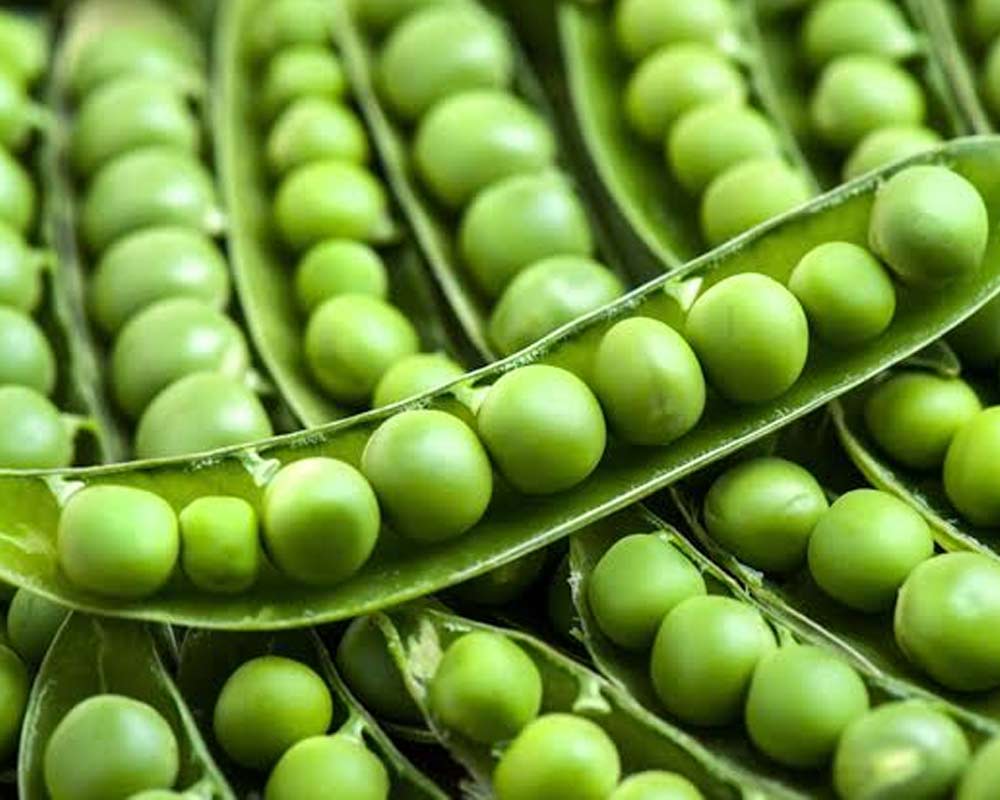
Amino acids are pretty well known within health circles as some of the most critical and important types of compounds essential for the proper function and health of the body. There are twenty (20) amino acids and all of them play a special part in ensuring that certain biological processes within the body are maintained and even enhanced. As such, it is no longer surprising that people will be curious as to the amino acid profile of certain food items, one of which is pea protein. But what is pea protein and what is its amino acid profile? Read on to learn more.
Pea Protein: A Brief Introduction
The powdered form of pea protein can be extracted from yellow peas and serves as a form of health supplement. It is used to enhance the protein levels of certain food items and beverages such as shakes and smoothies and can be a great addition to any form of a diet since pea protein is naturally hypoallergenic and vegan-friendly. It is a form of protein that is considered high quality, and it is also iron-rich. This supplement can also promote the growth and development of muscles, improved cardiovascular health, and weight loss.
Nutritional Benefits of Pea Protein
Protein Isolate can be produced through the isolation of protein found in yellow peas that are ground, coming up with a powder that is colored beige. Brands can have different nutritional contents, but 20 grams or two (2) scoops of Powdered Pea protein can provide 5 mg of Iron, Sodium of 230 mg, 1.5 grams of total fat, 1 gram of fiber, 1 gram of carbs, 15 grams of protein, and 80 calories. Powdered pea protein can provide several health benefits, which will be detailed in the next section of this article.
The Health Benefits of Pea Protein
Listed below are some of the health benefits of pea protein:
High-quality protein
All nine (9) amino acids that are essential can be obtained through pea protein, which the body is unable to produce hence, the need to acquire it from the food items being consumed. It must be noted though that it does not have high levels of methionine. Individuals can make up for this by consuming other food items that are rich in methionine, such as brown rice, pork, beef, poultry, fish, and eggs.
Pea protein is also rich in amino acids that three branched-chain particularly Arginine which can help improve cardiovascular health and improve the circulation of the blood. It also contains valine, isoleucine, and leucine, which can aid people in the development and growth of their muscles. It may be noteworthy to mention, though that animal-based protein is still more readily absorbed compared to those that are plant-based. There is research that suggests this type of protein is still one of the most easily processed proteins that are plant-based behind chickpeas and soy protein.
High levels of iron
Powdered pea protein contains iron in large amounts. Most of these products have iron in servings ranging from 5 to 7.5 mg which can make up 28% to 42% RDI or reference daily intake for women who premenopausal ande 62%to 94% of the reference daily intake or RDI for women who are postmenopausal and for males. Plant-based protein, though, is not as easily absorbed by the body compared to animal-based protein. To address this, individuals may try taking in this protein together with food items that are rich in vitamin c or with vitamin C supplements. This combination may increase protein absorption by up to sixty-seven percent (67%)
There is data to suggest that around ten percent (10%) of American females have a deficiency in Iron and taking powdered pea protein can be a great strategy in upping one’s intake of the said nutrient.
Can be taken with most special diets
This protein powder is dairy-free, gluten-free, vegan, and does not have any of the allergens that are considered major which include soy, wheat, milk, shellfish, fish, eggs, tree nuts, and peanuts. As such, it can be added or incorporated into many different kinds of diets, even those that are considered special or restrictive. As a bonus, pea powder can blend with water well and has a less chalky or gritty texture compared to hemp and other powdered protein supplements. There are no known major risk factors for pea powdered protein, but those with intolerance, sensitivities, or allergies should do their best to reduce their intake of it or better yet, avoid it completely.
Improves muscle mass
Evidence suggests that pea protein can help improve muscle mass when resistance training is done together with it. In a study that ran for 12 weeks, men who lifted weights who took in this protein daily in the amount of fifty (50) grams achieved almost the same muscle growth as those people who took in whey protein. This means that pea protein can be equally as effective in developing the muscles compared to other products that are more dairy-based.
Feel more satiated
It can aid in making people feel more satiated for longer periods. It can help people lessen their intake of calories and over time, lead to gradual weight loss. This protein powder is one way that is convenient in terms of boosting or enhancing one’s intake of protein. There is also evidence to suggest that pea protein can provide a better sensation of satiety and fullness compared to other protein powders that are dairy-based such as whey or casein. All in all, powdered pea protein is seen as a fantastic option for those wanting to improve their overall intake of protein and increasing fullness and satiation after a meal.